I have written a simple Fibonacci function as an exercise in C++ (using Visual Studio) to test Tail Recursion and to see how it works.
this is the code:
int fib_tail(int n, int res, int next) {
if (n == 0) {
return res;
}
return fib_tail(n - 1, next, res + next);
}
int main()
{
fib_tail(10,0,1); //Tail Recursion works
}
when I compiled using Release mode I saw the optimized assembly using the JMP instruction in spite of a call. So my conclusion was: tail recursion works. See image below:

I wanted to do some performance tests by increasing the input variable n in my Fibonacci function. I then opted to change the variable type, used in the function, from int to unsigned long long. Then I passed a big number like: 10e+08
This is now the new function:
typedef unsigned long long ULONG64;
ULONG64 fib_tail(ULONG64 n, ULONG64 res, ULONG64 next) {
if (n == 0) {
return res;
}
return fib_tail(n - 1, next, res + next);
}
int main()
{
fib_tail(10e+9,0,1); //Tail recursion does not work
}
When I ran the code above I got a stack overflow exception, which made me think that tail recursion was not working. I looked at the assembly and in fact I found this:

As you see now there is a call instruction whereas I was expecting only a simple JMP. I don't understand the reason why using a 8 bytes variable disables tail recursion. Why the compiler doesn't perform an optimization in such case?